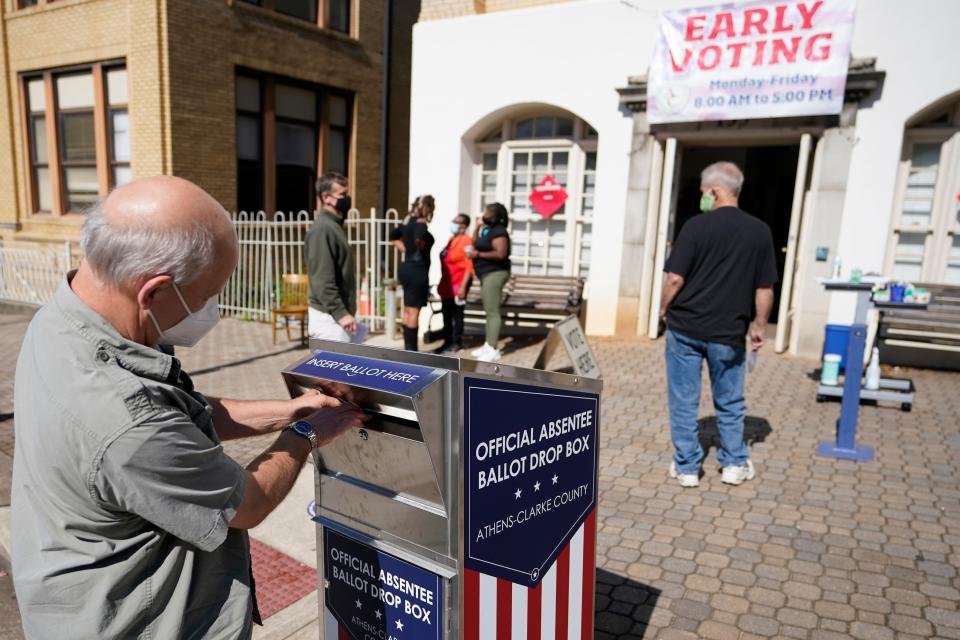Democrats hold biggest lead in party identification since 2012, poll shows

US voters heavily favor the Democratic Party, according to a new study from Gallup
(Copyright 2020 The Associated Press. All rights reserved)Democrats have the biggest advantage in party identification in nine years, a new survey shows.
According to new polling data released by Gallup, 49 per cent of American adults identify with or lean toward the Democratic Party, versus 40 per cent who do so for the Republican Party. That’s the biggest gap Gallup has recorded since 2012.
Similar polling bumps have benefited Democrats in the past, but not in over a decade. From 2006 to 2009, as President George W Bush’s popularity sank and Barack Obama rose to power, the Dems enjoyed double-digit leads over the GOP. The same was true in 1993, when Bill Clinton started his first term.
The pattern appears to be that the party does well just after Democratic president takes office. The most recent polling gap that matches the current one was in 2012, just after Mr Obama’s re-election, when Democrats had a nine-point lead over Republicans – the same size as today’s.
Read more:
Biden news live: President to issue executive order on gun control
Furious ex-Fox host storms off BBC amid row over Georgia voter laws
"I think we’re seeing a similar dynamic with Trump leaving office, again with the very low approval rating and (the excitement around) Biden coming into office," Jeff Jones, who wrote Gallup’s report on the data, told USA Today.
Gallup began studying party identification in 1991, and the difference between the two parties’ ratings is striking. Over the past 30 years, Democrats have almost always held a lead over Republicans, with the GOP only surpassing them at brief moments – such as after the US victory in the 1991 Gulf War, and after the 9/11 terrorist attacks.
Through it all, the numbers never add up to 100 per cent, because a stubborn percentage remains independent. In the 2021 poll, for example, 11 per cent said they didn’t lean toward one party or the other.
“If things get better with the coronavirus and the economy bounces back ... then that will be better for the Democrats," Mr Jones predicted. "But if things start to get worse – unemployment goes up or coronavirus gets worse – then his approval is going to go down.”
“A lot of it is going to depend on how things go over the course of the year,” he said.

 money
money 